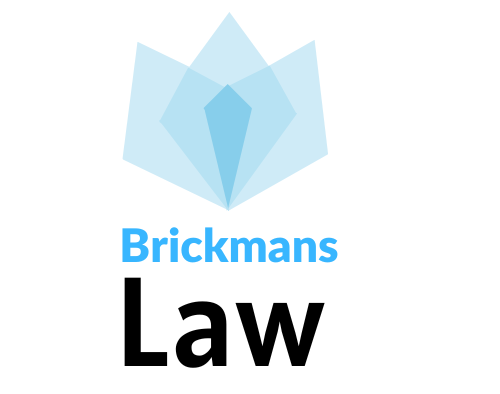An overview on CBN’s new Framework for Payment Service Providers
In December 2020, the Central Bank of Nigeria (CBN) announced new licence categorisations for the Nigerian payments system, in accordance with their responsibility to promote and facilitate the development of efficient and effective systems for the settlement of transactions.
These new re-categorisations are set out to improve efficiency of payments systems in Nigeria, enhance risk management measures and prevent commingling of payments services. They are:
- Switching and Processing
- Mobile Money Operations (MMOs)
- Payment Solutions Services (PSSs)
- Any other activity as may be approved by the CBN
The CBN requires that companies which perform more than one of these services, must adopt a group holding structure composed of a non-operating holding company and subsidiary companies to independently carry on a payment service.
This Article briefly summarises the provisions of the guidelines for the licensing and regulation of Payments Service Holding Companies (PSHC) in Nigeria.
GUIDELINES
1) Definition of a PSHC
A PSHC has been defined in the guidelines as “a company whose principal object clause includes the business of a holding company set up for the purposes of making and managing equity investment in two or more companies, being its subsidiaries, which are Payments Service Providers across the following categories: Mobile Money Operations, Switching and Processing, Payment Solution Services”.
Hence, a PSHC makes and manages investments in the subsidiaries and is non-operating i.e. it does not engage in day-to-day management and operations of the subsidiaries.
2) Structure
For a PSHC structure to emerge, there must be a minimum of two(2) subsidiaries including a Mobile Money Operator (MMO) and a Switching company.A PSHC may also acquire controlling interest in any permissible financial or technological company, subject to the CBNs approval. This suggests that a PSHC can acquire interests which are less than 51% of authorised share capital of the entity.
Furthermore, a PSHC may also elect to change to a mono-line payments service provider subject to the CBNs approval.
In the event that a PSHC loses control or controlling interest of any of the two payments services subsidiaries in the group (MMOs or Switching & processing), for a period of time exceeding six (6) months, the PSHC shall cease to be a PSHC.
The PSHC will be required to return its licence to the CBN for it to be cancelled. Where this happens, the PSHC’s interests in the subsidiaries are completely dispersed
A PSHC may be required, by order from the CBN, to divest from a subsidiary where the PSHC is considered by the CBN to be run in a manner that is harmful to the subsidiaries or threatens the financial system.
2) Licensing Requirements
The licensing process is in two (2) phases: Approval-in-Principle(AIP) and Final Approval.
Final approval must be granted before promoters begin to commence operations or perform any permissible activity as provided for in the Guidelines after acquiring the AIP. Application for a final licence needs to be made within six (6) months after acquisition of AIP.
In the event that a PSHC owns its subsidiaries, it is expected to maintain a minimum paid-up capital which shall exceed the sum of the minimum capital requirement of all the subsidiaries under it, as the CBN may so require from time to time. However, if the PSHC does not wholly own its subsidiaries, its minimum paid up share capital must exceed the total of its proportionate holding in the subsidiaries and excess capital in one industry and shall not be used to make up a capital shortfall in another subsidiary.
A PSHC is mandated to ensure compliance of minimum capital requirements by each subsidiary,
3) Supervision
The CBN is the authority that supervises PSHCs and their subsidiaries. This supervision is done on a consolidated basis.
PSHCs are required to render returns to the Payments System Management Department of the CBN on a quarterly basis, or in frequency and format, prescribed by the CBN and containing information on:
i) Compliance with Corporate Governance guidelines
ii) Whistle blowing
iii) Assets and liabilities of the PSHC and its subsidiaries
iv) Risk management
v) Internal control
vi) Intra-group transactions
4) Ownership and Control of PSHCs
The PSHC is to apply for approval from CBN, where there is any shareholding agreement of 5% and above acquired through the secondary market) or where there is any change in ownership that results in change in control of the PSHC. This approval must be applied for within seven (7) days of the acquisition.
Subsidiaries are prohibited from acquiring shares in the PSHCor from other subsidiaries of their parent PSHC.
No PSHC director, shareholder, agent or instrumentality shall enter into an agreement or arrangement which results in a change in control of the PSHC and the transfer of shareholding of 5% and above in the PSHC without the prior written approval of the CBN.
5) Management of Subsidiaries
PSHCs are prohibited from arrogating to themselves any powers or functions of the Board of Directors, interfering in the day-to-day activities of the subsidiaries; getting involved in the administration and approval process of subsidiaries, having any PSHC employee work for any subsidiary or engage the services of any employee of any of its subsidiaries. PSHCs are also
prohibited from purchasing/disposing assets from/to its subsidiaries without the prior written approval of the CBN.
6) Permissible activities
The PSHC may enter into technical or management service agreement with any of its subsidiaries after first obtaining the CBNs approval.
Some of the service agreements involved are:
- Human Resource services
- Risk Management services
- Internal Control services
- Compliance services
- Information and Communication Technology
- Legal services
- Facilities (office accommodation including electricity, security, cleaning services in that accommodation) and
- Any other services as may be approved by the CBN from time to time
7) Non-Permissible Activities
- Establishment, divestment and closure of subsidiaries, without the prior written approval of the CBN
- Deriving or receiving income from sources other than the following:
- Dividend income from its subsidiaries/associates
- Income from shared services, where applicable
- Interest earned from idle funds invested in government securities or placement with licenced financial institutions
- Patents, royalties and copyrights
- Profit on divestment from subsidiaries/associates, and
- Any other source as may be approved by the CBN
8) Corporate Governance
There shall be a minimum of five (5) directors and a maximum of ten (10) directors on the Board of a PSHC, subject to the CBNs guidelines.
The board must consist of at least one (1) individual with requisite experience in the business(es) of the subsidiary payments service companies within the group. Appointment of such director(s) must comply with the requirements of Assessment Criteria for Approved Persons’ Regime for Financial Institutions or any other applicable regulation, issued by the CBN from time to time.
The Board of a PSHC is expected to demonstrate competence and independence in compliance with applicable CBN guidelines on Corporate Governance. They are also expected to comply with the guidelines of the Securities and Exchange Commission (SEC) for publicly quoted companies.
On disqualification of Board members, the regulations applicable to Other Financial Institutions (OFIs), also apply to PSHCs.
CONCLUSION
One of the objects of the CBN is promoting a sound financial system in Nigeria and the re categorisation of Nigerian payments systems complements this objective soundly.
These Guidelines on how PSHCs should be managed strengthens accountability of payments systems as a result of activities being well defined across subsidiaries i.e. no individual company providing mobile money services, payment solutions services and switching & processing services simultaneously. Companies which have diverse interests in payments services can adopt a holding company structure with clearly outline licensing requirements and improved corporate governance mechanisms. This also supports the CBN with their goal proper risk management and achieving adequate regulatory oversight.
Footnotes
- CBN, Guidelines for licensing and regulation of Payments Service Holding Companies in Nigeria (CBN Guidelines ) https://www.cbn.gov.ng/Out/2021/CCD/CIRCULAR%20AND%20GUIDELINES%20FOR%20LICENSING%20AND%20REGULATION%20OF%20PAYMENTS%20SERVICE%20HOLDING%20COMPANIES%20IN%20NIGERIA.pdf
- CBN Guidelines, paragraph 2.1
- ibid, para 2.2
- CBN Guidelines, para 2.3
- ibid, para 2.3.3
- ibid, para 4.1(e)
- ibid, para 2.4
- CBN Guidelines, para 8.0
- ibid, para 8.1
- ibid, para 8.2.1
- ibid, para 8.2.2
- ibid, para 4.1(a)
- ibid, para 4.1(b)
- ibid, para 4.2
- ibid, para 6.1
- ibid, para 6.1.1
- CBN Guidelines, para 5.0
- ibid, para 5.2
- ibid, para 6.0
- ibid, para 4.0
- ibid, para 4.0(a)
- CBN Guidelines, para 4.0(b)
- ibid, para 4.0(d)
- ibid, para 4.0(c)





